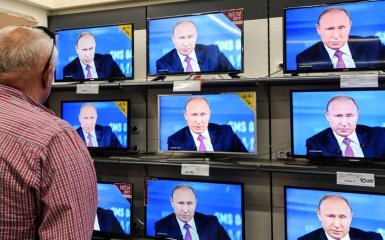The collapse of Russia in the next 50 years is a completely likely scenario, and experts believe that this will benefit not only Ukraine and the West, but also the Russian Federation itself. This opinion was expressed by Andriy Kovalenko, head of the Center for Countering Disinformation.
Points of attention
- The collapse of Russia within the next 50 years is possible if the dictator Putin's regime and aggressive policies continue.
- The controlled division of the Russian Federation into national entities will contribute to the independent determination of policies taking into account ethnic interests.
- The collapse of Russia will have a positive impact on all sides, allowing for a redistribution of spheres of influence and a revision of the historically barbaric model of development.
- The Russian economy faces challenges such as high inflation, sanctions, a weakened currency, and volatile oil prices.
- Rising prices and high interest rates are unable to contain the economic crisis, which could lead to serious consequences for the country.
How Russia could collapse in the next 50 years
According to Andriy Kovalenko, if the regime of dictator Vladimir Putin survives and aggressive policies continue, the collapse of Russia will become a predictable scenario.
The controlled division of Russia into national entities with central Muscovy over the next 50 years is inevitable, the head of the Central Democratic Party of Russia said.
Kovalenko emphasized that the collapse of the Russian Federation will have a positive impact on all parties:
National entities will be able to independently determine their policies and partners in accordance with ethnic interests.
Big players and Ukraine will be able to redistribute spheres of influence.
Russia itself will be able to reconsider its historically barbaric model of development and move to a new civilizational model.
"For Russia and Russians, this is the only chance for survival. The imperial model no longer works and leads to the death of everything they consider important," Kovalenko emphasized.
The expert added that such a scenario would allow the Russian Federation to reboot and become part of the modern world.
Putin has driven the Russian economy into a dead end
Oleg Vyugin, an economist and former high-ranking Central Bank official, made a statement on this matter.
In his opinion, the relatively good period for the Russian economy has already ended.
High inflation is eating away at all this seemingly short-term success, the expert emphasized.
One cannot also ignore the fact that the aggressor country faces sanctions, a weakened currency, unclear prospects for oil prices, and the fear of losing support from China.
As noted by Serhiy Dmitriev, an information technology specialist, high interest rates have failed to curb price growth, which is more than twice the target.
According to him, record borrowing costs have already become noticeable for the aggressor country.




